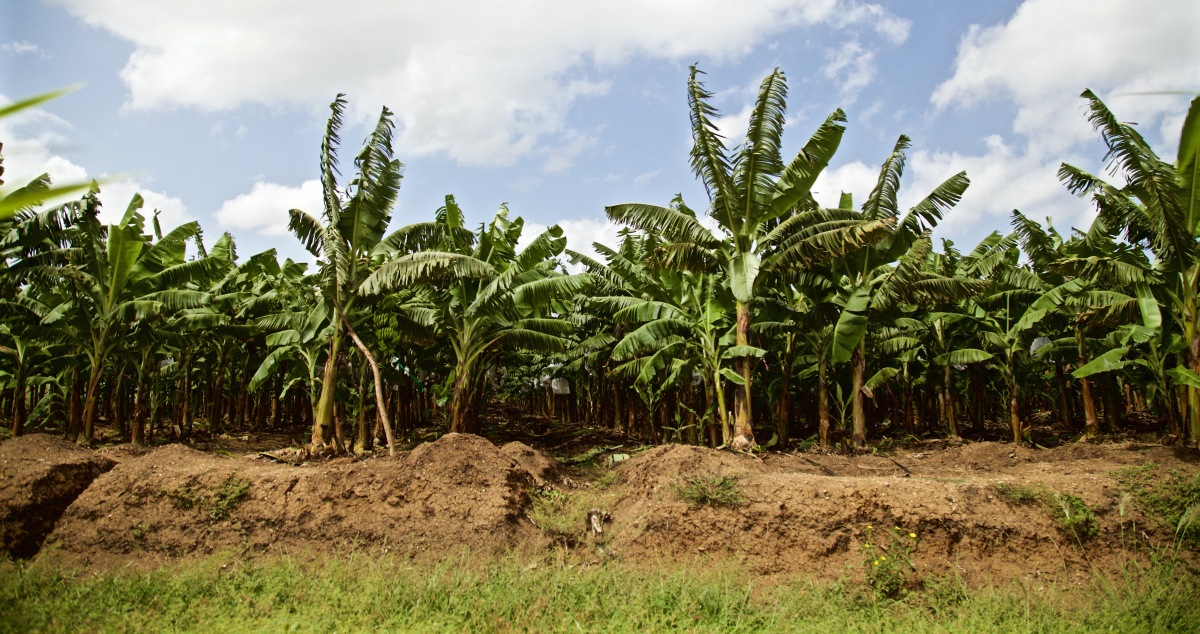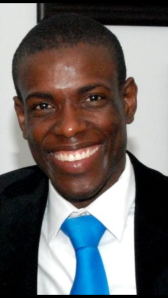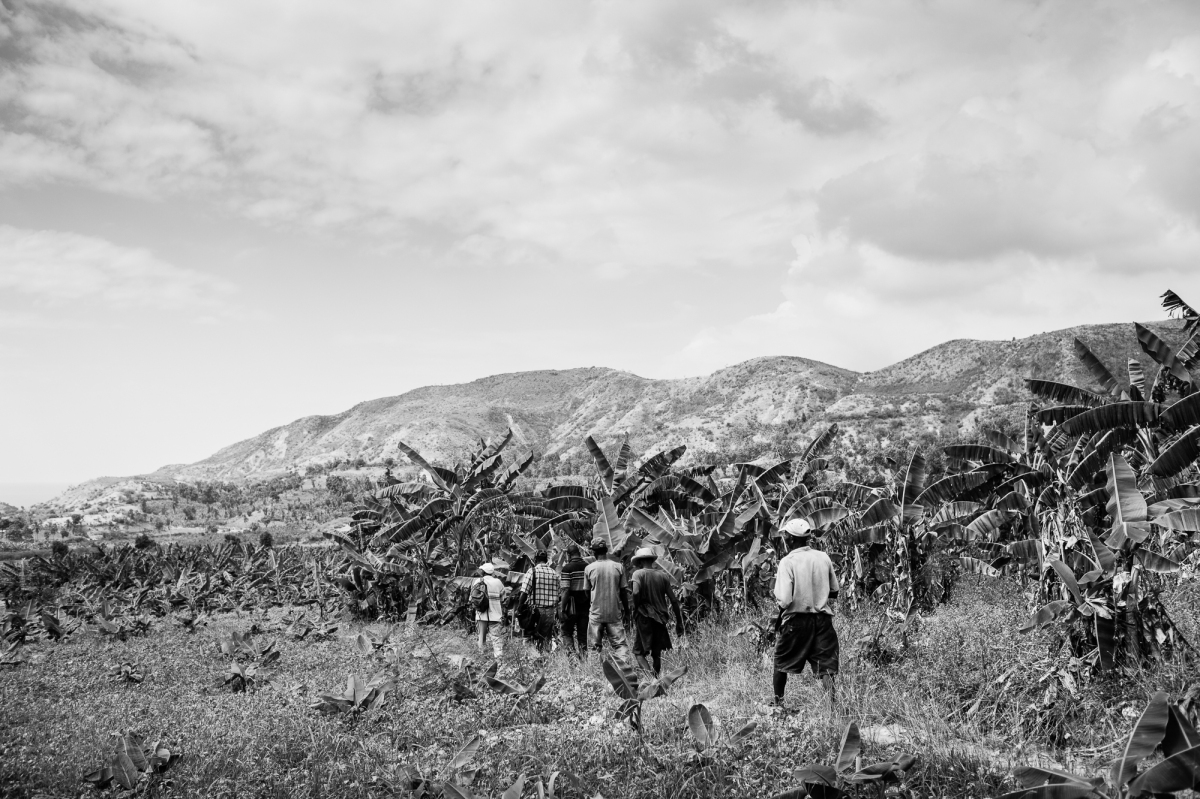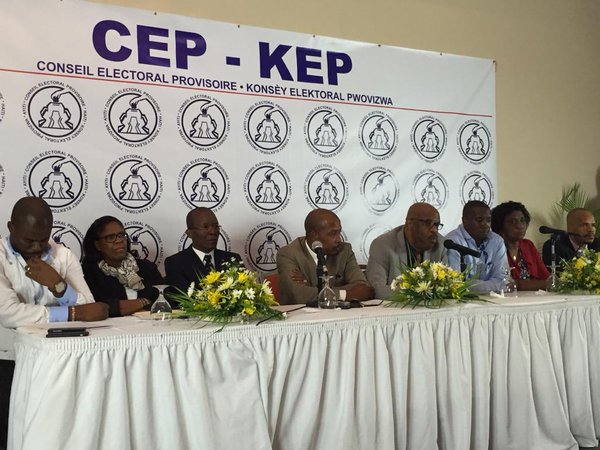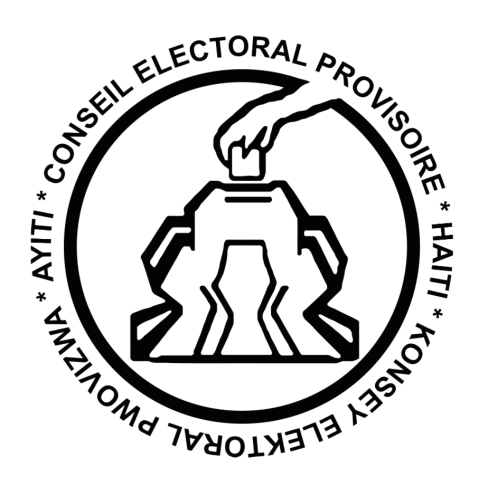Stop
the Attacks on Former President Jean Bertrand Aristide and the Lavalas Movement
One week before, President Aristide was summoned to court on false corruption
charges. This is the fourth time
since his return to Haiti in 2011 that he has been the target of a politically
motivated legal case. (Previous charges were dropped before he could even
challenge them in court.) The judge in this case, Lamarre Bélizaire, has been
suspended for ten years from practicing the law by the Port-au-Prince Bar Association
for using the court to persecute opponents of the present regime. His
suspension is due to begin once he steps down as judge.
President Aristide, a former priest, was Haiti’s first democratically
elected president. He is loved and trusted by the majority of Haitians. While
in office he built schools and hospitals, encouraged agriculture and doubled
the minimum wage. He was removed and forced into exile with his family in 2004
by a US-backed military coup. Thousands
of members of his Lavalas movement were killed, raped or falsely imprisoned in
the aftermath of the coup.
In 2011, after seven years of grassroots organizing in Haiti backed up by
an international campaign, President Aristide and his family returned
home. Tens of thousands of people welcomed
him. He promised to work for education and the inclusion of all Haitians in the
democratic process. He has done just that – reopening the Aristide Foundation’s
university, UNIFA, where today over 900 students from all sectors of society,
including those who cannot afford higher education, are training to become
doctors, nurses and lawyers.
Legislative elections due to take place in Haiti in October are
triggering a new chilling wave of repression aimed at President Aristide and
his supporters. Lavalas has
overwhelming won every election in which it has participated, but since the 2004
coup the party has been barred from elections. As a result, fewer than 20% of Haitians turned out for the
flawed election that brought the current President Michel Martelly to power in
2011. The Martelly government has
not held an election since, and legislative elections are now three years
overdue. Determined to consolidate dictatorial power, the Martelly government
has systematically attempted to defame Lavalas, throwing out one set of
accusations after another against President Aristide and other respected
Lavalas leaders such as former Senator Myrlande Liberis-Pavert.
While President Aristide is being threatened with arrest, former dictator
Jean-Claude “Baby Doc” Duvalier – who is responsible for the deaths of
thousands of Haitians during his rule – is living freely in Haiti, and has been
openly embraced by Martelly.
Since the devastating earthquake and the cholera epidemic, doctors,
nurses and other healthcare professionals training at UNIFA are needed more
than ever. President Aristide must be able to carry on with his vital work as
an educator.
The last time President Aristide was summoned, thousands of people
surrounded the courthouse, chanting: “If they call our brother, they call all
of us.” We echo their voices. Enough is enough. It is time for food, housing, health
care and education. It is time for
free, fair, and inclusive elections in Haiti, not dictatorship, so the urgent
needs of the population can be addressed. The arrest warrant and other false
charges aimed at President Aristide and his supporters should be dropped once
and for all.
Signers:
Danny Glover, Actor and Human
Rights Activist
Selma James, Author and
International Coordinator, Global Women’s Strike (GWS)/UK
Pierre Labossiere, Co-founder,
Haiti Action Committee
Mumia Abu-Jamal, Journalist
and death row prisoner
Jerry Acosta, Senior National
Representative, Utility Workers Union of America
Dr. Adrianne Aron, Liberation
Psychologist
Kali Akuno, Malcolm X
Grassroots Movement (MXGM)
ALBATV (Venezuela)
Alexandria House, Los
Angeles, CA
Bilal Mafundi Ali, Organization
of African American Unity
Jahahara Amen-RA Alkebulan-Ma'at, Founder, Africans Deserve Reparations
Akubundu Amazu-Lott, Central
Committee AAPRP
Jack Albert, Windsor Peace
Coalition, Windsor, Ontario
A.N.S.W.E.R. Coalition - Act
Now to Stop War and End Racism (U.S.)
Arab Resource & Organizing Center (AROC)
Ayuko Babu, Pan African Film
Festival
Michael Bass, School of the
Americas Watch
Bay Area Latin America Solidarity Committee (BALASC)
Richard Becker, A.N.S.W.E.R.
Coalition - (U.S.)
Dennis J. Bernstein, Executive
Producer KPFA/Flashpoints
Johanna Berrigan, House of
Grace Catholic Worker, Philadelphia, Pa.
Diana Block, California
Coalition for Women Prisoners
Diana Bohn, Nicaragua Center
for Community Action, Berkeley, CA
Blase and Theresa Bonpane,
Directors, Office of the Americas
Richard Brown, San Francisco
8/Committee for Defense of Human Rights
Dr. Siri Brown, Chair of
Ethnic Studies, Merritt College
Mark Burton, Visiting
Professor, Manchester Metropolitan University, Manchester, UK
Reverend Richard Meri Ka Ra Byrd
Joey Cain, SF LGBT Pride
Celebration Committee Board Member
Rossana Cambron, member of
Military Families Speak Out
Dolores Canales, Organizer
and activist
Laura Carlsen
Andrea Casher, PsyD,
ABPP
Chiapas Support Committee –
Los Angeles
CIP Americas Program
Terry Collins, KPOO
Brian Concannon, Institute
for Justice and Democracy in Haiti (IJDH)
Shandre Delaney, Human Rights
Coalition-Fed Up and Abolitionist Law Center, Pittsburgh, PA
Jacques Depelchin, Historian
Dignity and Power Now – Los
Angeles
Emory Douglas, former
Minister of Culture, Black Panther Party
Sister Maureen Duignan,
Executive Director, East Bay Sanctuary Covenant
Carolina Dutton, Bay Area
Latin America Solidarity Coalition (BALASC)
Derethia DuVal, PhD, MFT,
SFSU Director of Counseling & Psychological Services Center
Mia Engberg, Documentary Filmmaker,
Sweden
Ecumenical Peace Institute/CALC
Linda Evans, Organizer, All Of Us Or None
Leslie Fleming, Director,
Anthropology Program, Merritt College, Oakland, CA
Laura Flynn, Author
FMLN - Northern California
Frente Nacional de Resistencia Popular (Honduras)
Cindy Forster, Professor, Scripps
College, California
Tova Fry, Workers World Party
Mattias Gardell, Professor
Comparative Religion, Uppsala University, Sweden
Anna-Maria Gentili, Professor
History and Politics, Bologna University, Italy, retired
David Gespass, former
President, National Lawyers Guild
David Gibson, Peacehome
Campaigns
Eric Gjertsen and Dean Kendall, Payday
men’s network
Andy Griggs, LA Laborfest
Deeg Gold, LAGAI Queer
Insurrection
Sister Stella Marie Goodpasture, OP, Dominican Sisters of
Mission San Jose, CA
Guerilla Food Not Bombs
Ben Guillory
Bishop Thomas Gumbleton,
Archdiocese of Detroit
Professor Shadrack Gutto, PhD, University of South Africa
Daletha Hayden, RN and activist
Genesy Hernandez, Union
Salvadorena de Estudiantes Universitarios, UC Berkeley
Charles Hinton, Inkworks
Press, worker-owned collective
Marcus Holder, ILWU Local 10
delegate to San Francisco Labor Council
Hondurans in Resistance – NorCal
Gerald Horne, Historian
Phil Hutchings, Civil Rights
activist (SNCC)
Nehanda Imara, AAPRP
Organizer & Faculty at AFRAM Merritt College
Dr. Nia Imara, Harvard
University
International Action Center
Kokayi Kwa Jitahidi, Campaign
Director LAANE (Los Angeles Alliance for a New Economy)
Sister Gloria Marie Jones, OP, Congregational Prioress Dominican
Sisters of Mission San Jose
Hank Jones, Committee for the
Defense of Human Rights
Phoebe Jones, PhD, Quaker, Global Women’s Strike
James Jordan and Chuck Kaufman, National
Co-Coordinators, Alliance for Global Justice
William Joyce, Chair, Fr.
Bill O'Donnell Social Justice Committee
Malaika Kambon, Photojournalist
Sara Kershnar, International
Jewish Anti-Zionist Network
Nadine Khoury-Quesada, RN,
Trauma Nurse, San Francisco General Hospital
Nunu Kidane, Director, Priority
Africa Network
Marcus Kryshka, Executive
Vice President, National Lawyers Guild
Eusi Kwayana, Caribbean
Activist Without Borders
Tchaiko Kwayana, Educator
Labor Community Strategy Center (Los
Angeles)
Regina Day Langhout, PhD, Provost, Oakes College, University of
California at Santa Cruz
Marilyn Langlois, Richmond CA
Planning Commissioner
Gloria La Riva, National
Committee to Free the Cuban Five
Rev. Dr. Phil Lawson, Pastor
Emeritus, Easter Hill United Methodist Church
Richard Lichtman, Professor
Emeritus, Philosophy, The Wright Institute, Berkeley, CA
George Lippman, Vice-Chair,
Berkeley Peace and Justice Commission [for identification only]
Rev. Dr. Lewis E. Logan, II
Jose Lopez, Executive
Director, Puerto Rican Cultural Center, Chicago
Nina Lopez, Coordinator Latin
America working group GWS/Argentina, UK
Jacqui Lovell, PhD Candidate,
York St. John University, U.K
Barbara Lubin, Director
Middle East Children’s Alliance
M. Brinton Lykes, Associate
Director, Center for Human Rights & International Justice, Boston College
Robert Majzler, University of
California at Santa Cruz
Claude Marks, Freedom
Archives
Gayle McLaughlin, Mayor, City
of Richmond, CA
Anita Schrader McMillan, Warwick
Medical School, Coventry, UK
David McPhail, Ruling Elder,
St. John's Presbyterian Church, Berkeley, CA
Judith Mirkinson, San
Francisco Women’s International League for Peace and Freedom
Wazir Mohamed, Associate Professor, Sociology
Alejandro Molina, National
Boricua Human Rights Network
Movimiento Cumbe Afrosalud Barlovento (Venezuela)
Leslie Mullin, San Francisco
Women in Black
Michael Neocosmos, Director
UHURU program, Rhodes University, South Africa
Robert Nixon, School of the
Americas Watch – Oakland, East Bay
Kwazi Nkrumah, Co-Chair,
Martin Luther King Coalition of Greater Los Angeles
Kiilu Nyasha, Host/Freedom is a Constant Struggle
Oakland-Santiago de Cuba Sister Cities Association
Ofraneh (Organización
Fraternal Negra Hondureña, Honduras)
Catherine Owen, Human Rights
Committee & District Labor Council, Windsor, Ontario
Tanalis Padilla, Professor of
History, Dartmouth College, New Hampshire, U.S.
Rosa Peñate, FMLN – Northern California
Peter Phillips, PhD,
President Media Freedom Foundation/Project Censored
Kevin Pina, Documentary Filmmaker
Richard Pithouse, Professor
Politics and International Studies, Rhodes University
Suyapa Portillo, Comité
Solidario Graciela Garcia
Margaret Power, Professor of
History, Illinois Institute of Technology
Margaret Prescod, Host
“Sojourner Truth,” Pacifica Radio & Women of Color/GWS/US
Porfirio Quintano, Coordinator,
Honduran Resistance FNRP Northern California
James Quesada, PhD, Chair and
Professor, Department of Anthropology, San Francisco State University (SFSU)
Kate Raphael, Queers
Undermining Israeli Terrorism (QUIT), KPFA Women's Magazine
Mary Ratcliff, Editor, San
Francisco Bay View National Black Newspaper
Dr. Willie Ratcliff, Publisher,
San Francisco Bay View National Black Newspaper
Barbara Rhine, Attorney
Wilson Riles, Oakland C.A.N.
Walter Riley, Attorney, Chair
of Board, Haiti Emergency Relief Fund
William I. Robinson, Professor
of Sociology, University of California-Santa Barbara
Robert Roth, Co-founder,
Haiti Action Committee
Alex Sanchez, Executive Director,
Homies Unidos
Carolyn Scarr, Ecumenical
Peace Institute/CALC
Azadeh Shahshahani,
President, National Lawyers Guild
Dan Siegel, Attorney,
Oakland, CA
Dr. Vito Signorile, Professor
Emeritus, Windsor, Ontario
Gwendolyn Zoharah Simmons,
National Council of Elders
AJ Smith, Artist, Windsor,
Ontario
Bob Smith, Brandywine Peace
Community
Susan Gold Smith, Professor
Emerita, Windsor, Ontario
Dale Sorensen, Director,
Marin Interfaith Task force on the Americas
Jeb Sprague, Author and
Instructor, UCSB
Patricia St. Onge, Seven
Generations, Nafsi ya Jamii: The Soul Community
Ruth Todasco, Every Mother is
a Working Mother Network
Clarence Thomas, member ILWU
Local 10
Willie Thompson, Professor
Emeritus Sociology, City College of San Francisco
Walter Turner, President,
Board of Directors, Global Exchange
Akinyele Umoja, Associate
Professor and Chair, Department of African American Studies, Georgia State
University
Lisa Valenti, US Cuba Sister
City Association
Sister Judy Vaughan, CSJ
Gloria Verdieu
Margaret Villamizar, Chair,
Windsor Peace Coalition, Windsor, Ontario
Ernest Wamba dia Wamba, Congolese
Historian, Philosopher
Kristin Wartman, Author and Journalist
Tom Webb, Oakland Catholic
Worker
David Welsh, delegate, San
Francisco Labor Council
Michel Wenzer, Documentary Filmmaker,
Sweden
Laura Whitehorn, former political
prisoner
Witness For Peace Southwest
Michael Wong
Workers World Party
Pauline Wynter
Mario Zelaya, Father Bill
O'Donnell Social Justice Committee, Berkeley, CA
Affiliations listed for identification purposes only

